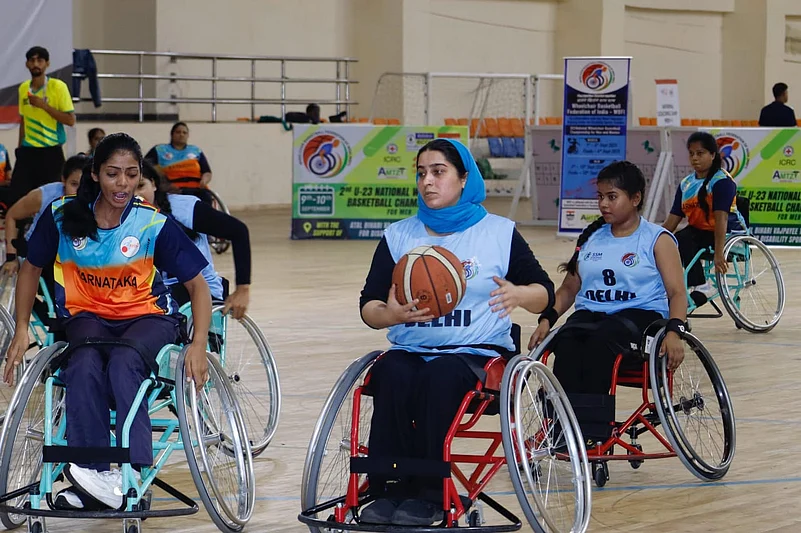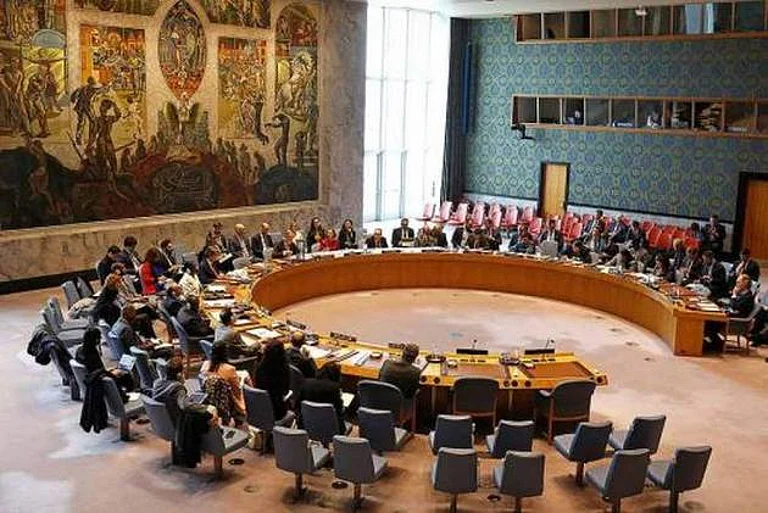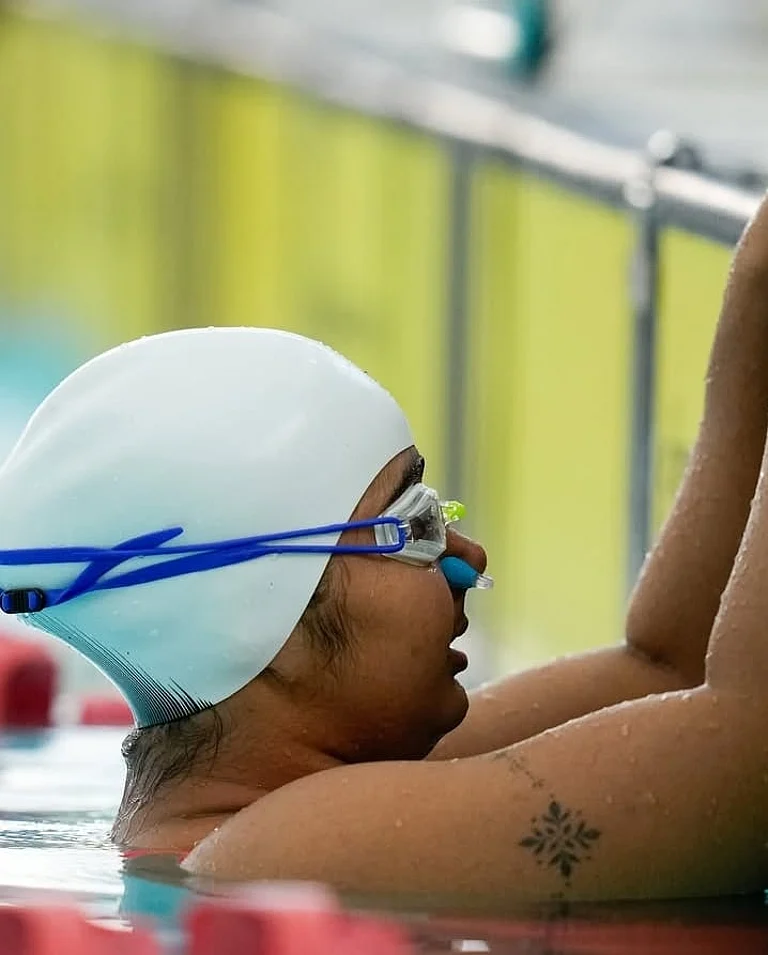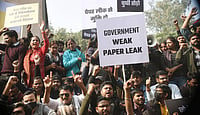
Ishrat Akther’s life changed in 2016, an uneasy year for the Kashmir Valley, when she sustained a spinal cord injury that rendered her wheelchair bound.
She started playing wheelchair basketball in 2018 and has, over the years, represented India internationally and won numerous medals and awards.
Despite all the achievements, due to the absence of any sponsors, she struggles to collect funds every time she has to travel for tournaments.
On August 25, 2019, Ishrat Akther, who was then 23, was holed up in her house in Bangdara village in Baramulla. Kashmir was cut off from the rest of the country after Article 370 was revoked and the Valley was put under lockdown.
There was a knock on the door. Ishrat’s father, Abdul Rashid Mir, froze when he saw Army and police personnel standing outside. A policeman was holding his daughter’s photograph. He asked Rashid if Ishrat was his daughter. Rashid nodded.
What happened next marks the beginning of Ishrat’s incredible sporting journey.
This, however, was not the turning point. Ishrat’s life changed three years prior to this incident—in 2016, another uneasy year for the Valley. After a fall from the ledge of the second floor of her house, she injured her spine. Recurring curfews delayed her treatment. By the time she was operated upon, it had been six days since her fall. She couldn’t feel her legs. The doctor informed her father that the spinal cord injury had paralysed her below the waist and she would have to spend the rest of her life in a wheelchair.
Ishrat was bedridden for two years. “In the initial days, I had to crawl to the washroom. The way people stared at me out of sympathy and pity was disheartening. I had never seen a wheelchair before. The fact that I had to get used to it was making me depressed,” says Ishrat. Her parents and sisters motivated her to accept her new life and find a purpose. It was easier said than done. It took Ishrat months to step out of her house again.
She started visiting a rehabilitation facility in Srinagar. “The physiotherapy sessions helped. I could sit again. I went there for a couple of months. A few boys would practice wheelchair basketball there. One day, I decided to join them,” says Ishrat.
She didn’t even know if she could play basketball, but she found her purpose. She practiced hard and realised she was good at it. She attended her first camp in Srinagar in 2018, after which she was selected for the nationals. In 2019, she visited Mohali—her first trip outside Kashmir—for the second nationals, which led to her entry in the Indian squad.
In August 2019—the month Article 370 was revoked and Kashmir went into a long lockdown—the Wheelchair Basketball Federation of India (WBFI) was trying to get in touch with Ishrat. She was selected for the Asia-Oceania Wheelchair Basketball Championship, scheduled to be held in Thailand later that year, and she had to go to Chennai for the national camp. It was a big deal as it was also the qualifying event for the 2020 Tokyo Paralympics.
“Louise George, the head coach of the women’s team, didn’t know my exact address, but he knew that I lived in Bangdara. Because of the lockdown and the Internet shutdown, no one could reach me. He mentioned this to his childhood friend, Retired Colonel Isenhower. A few Army and police personnel went door to door with a passport-sized photograph of mine. That’s how they managed to track me down. I am grateful for their efforts. It’s thanks to them that my journey of representing India on international platforms began,” says Ishrat.
She became the first girl from her village to travel alone, all the way to Chennai. Because the Valley was simmering, the Army and police personnel escorted her. The entire village came to bid her goodbye. “It was very encouraging. The same people who were feeling miserable for me were now cheering for me. It helped me perform better,” she says.
There has been no looking back since then. Over the years, Ishrat has participated in numerous national and international tournaments and won many awards and medals. She is the first girl from Kashmir to play basketball and handball internationally. She is also the first one from Kashmir to win a medal in basketball at the World Championship held in Egypt. Her list of achievements runs over two pages. Despite this, there are two major roadblocks in her sporting journey—infrastructural woes and the lack of sponsors.
“There are no dedicated basketball courts for wheelchair players in Kashmir. In fact, there are no facilities for persons with disabilities. Even the Social Welfare Department and the Lieutenant Governor’s (LG’s) office are not wheelchair friendly. I met the officials there a couple of times to request a dedicated basketball court and better infrastructure, but things didn’t change,” says Ishrat.
The lack of sponsorship continues to be a challenge. “Every time I am travelling for a camp or a tournament, I have to literally beg for money. Contributions range from Rs 100-200-500. It’s very humiliating and demotivating. Despite achieving so much, I don’t have a single sponsor,” says Ishrat.
Last year, a team from the National Basketball Association (NBA), a professional basketball league in North America, landed in Ishrat’s village in Kashmir. In the video, Ishrat is seen dribbling and dunking a basketball at a picturesque location, while two rappers are narrating her journey. The audio-visual profile, that too done by the NBA, was supposed to get her sponsors, but that has not happened so far.
“It is what it is. I try not to get demotivated. My family continues to support me. There are other pillars of strength, like Manish Sharma, my basketball coach, who is also my mentor and guide. My practice and gym schedules keep me occupied. In my free time, I enjoy cooking. I support my family, who runs an online business named Coastal Zaiqa,” says Ishrat.
Recently, she participated in the nationals held at Gwalior, where her team was the runner-up and won a silver. She wants to keep playing basketball for as long as she can. “Growing up, I never imagined this is how my life was going to be; that being a girl, I will be able to step out of Kashmir and travel the world while achieving things for my country. This wheelchair has taken away a lot, but it has given me a lot more. I am grateful for all the love, respect and support,” she says.






























